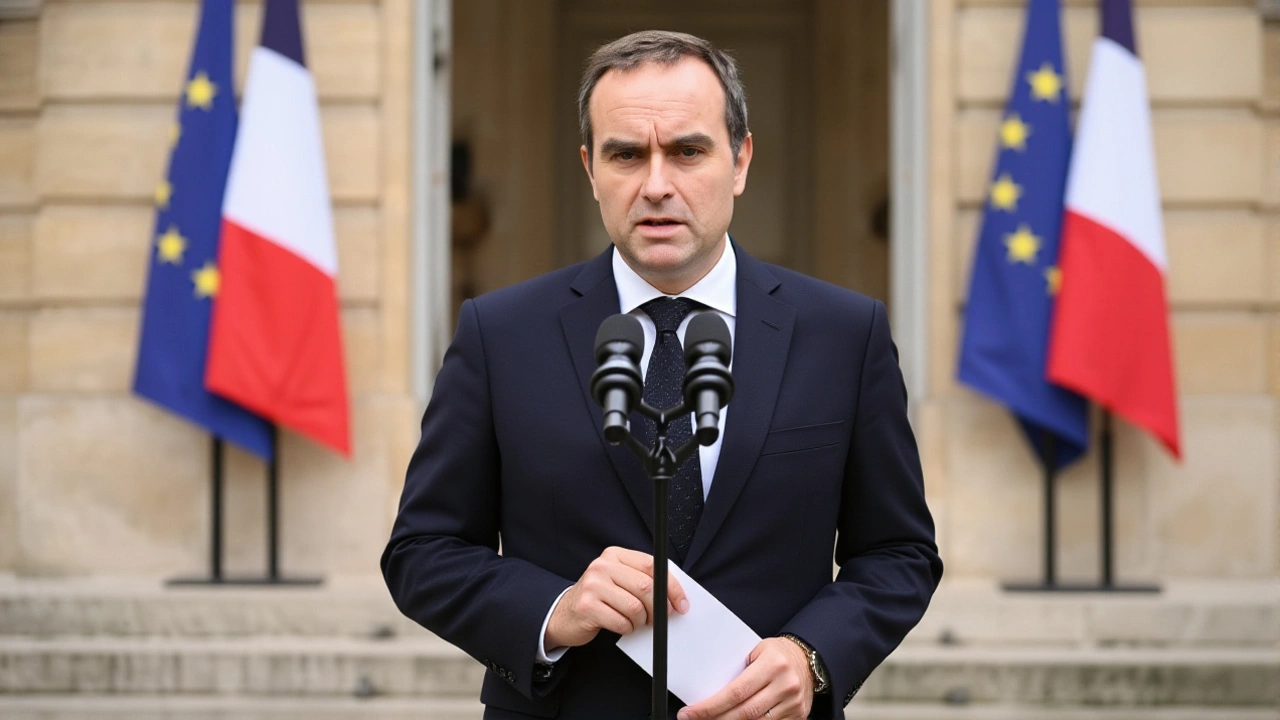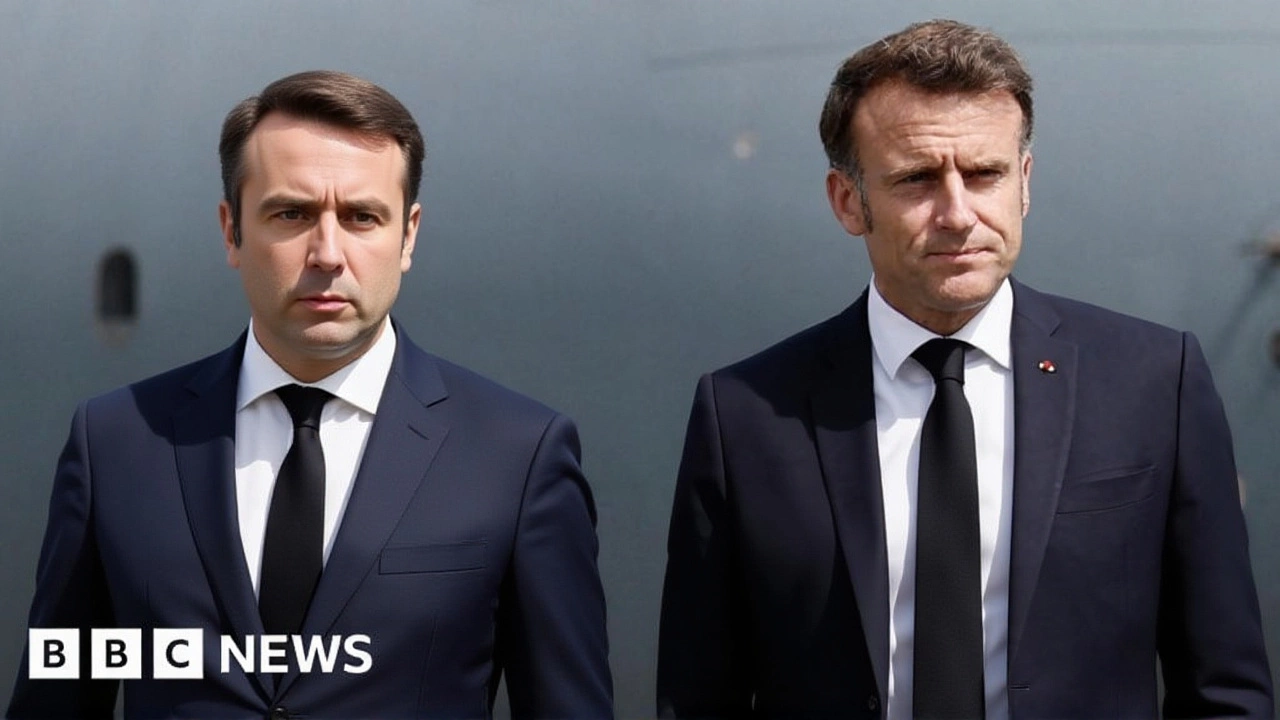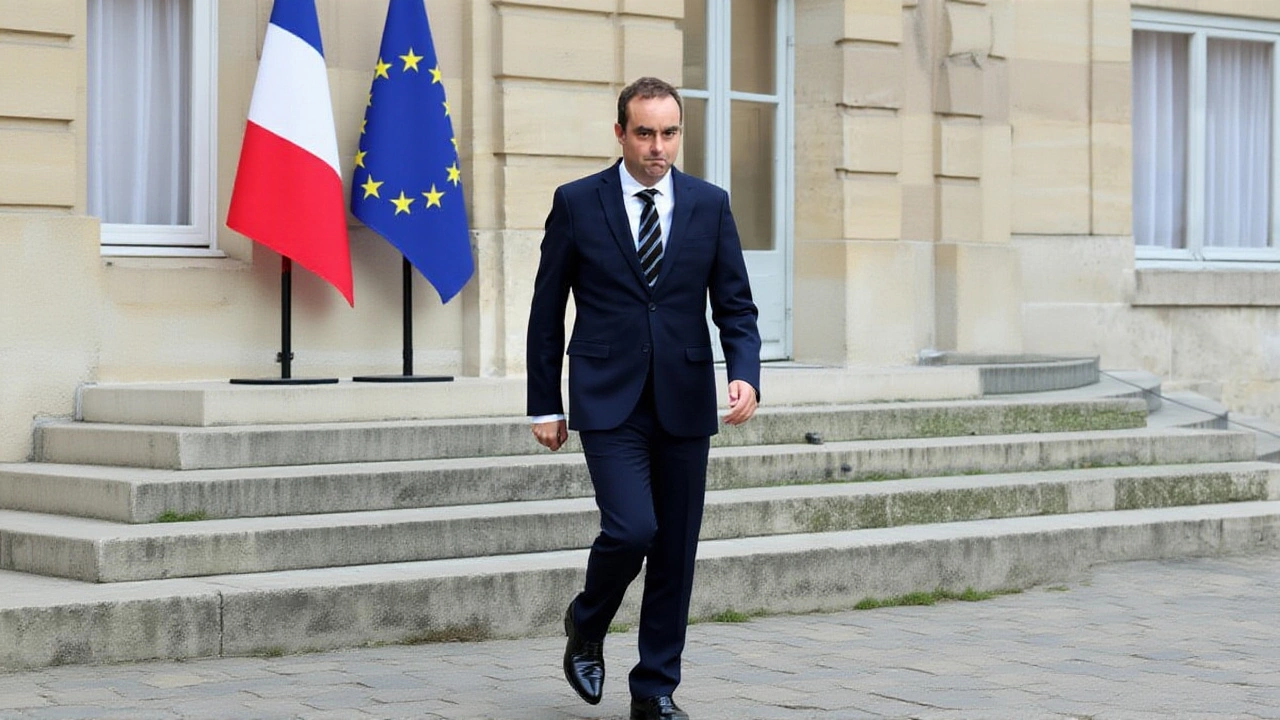When Sébastien Lecornu, prime minister of Renaissance announced his resignation on , the shock reverberated through Paris and beyond. The announcement came at , barely a day after Lecornu unveiled a cabinet that was slated to meet at in the historic Hôtel Matignon. President Emmanuel Macron accepted the resignation but asked the outgoing premier to stay on in a caretaker role while he pursued “last‑ditch negotiations” with party leaders, hoping to stave off a full‑blown governmental collapse.
Background: Macron’s Turbulent Second Term
Macron’s second term, which began after his re‑election in 2022, has been riddled with dissent. His approval rating fell below 30 % in early 2025, a historic low for any French president in modern times. The president’s flagship party, the centrist Renaissance, has struggled to keep a coherent coalition together, especially after the devastating defeat in the June 2024 European Parliament elections, where the party lost key seats to both the far‑right National Rally and the left‑wing France Unbowed.
Adding fuel to the fire, the National Assembly has been deadlocked over the 2025 national budget for months. Opponents argue that Macron’s fiscal plan relies too heavily on tax hikes for corporations while neglecting social spending. The result? A series of failed votes, spontaneous street protests, and a growing perception that the executive is losing its grip on the legislature.
Lecornu’s Brief Tenure and Cabinet Shuffle
Lecornu, a former interior minister and close confidant of Macron, was tapped to replace François Bayrou in early September 2025. The expectation was that his reputation as a pragmatic administrator could steady the ship.
Instead, his cabinet—unveiled on October 5—featured many familiar faces from the previous administration, prompting criticism that the prime minister was merely reshuffling cards without altering the underlying dynamics. Opposition leaders complained that the new lineup did not represent any meaningful concession to the left or the right, and that the same partisan stalemate would continue unabated.
In his brief press conference outside Hôtel Matignon, Lecornu said, “Conditions for governance no longer exist,” blaming entrenched “political egos” for an inability to compromise on sensitive dossiers like pensions, unemployment benefits, and the crucial budget line.
The Resignation and Immediate Fallout
At the press briefing, Lecornu announced that he would step down, citing “the feeling that the line is moving back each time we move forward.” He emphasized that “one must always put one’s country before one’s party,” but added that the reality was a stalemate that could not be broken under his watch.
President Macron, visibly surprised, responded by thanking Lecornu for his service and urging him to stay on as a caretaker until a successor could be named. The president also promised “intense, last‑ditch negotiations” with leaders from across the spectrum, hoping to keep the government afloat until a new coalition could be forged.
Within minutes, the news set the political Twitterverse alight. The political crisis was described by analysts as “the most severe since the 2018 government reshuffle,” and markets reacted with a modest dip in the CAC 40, reflecting investor nervousness over policy uncertainty.

Opposition Reactions and Regional Leaders
Far‑right leader Marine Le Pen of the National Rally was quick to seize the moment. In a televised interview she warned, “This raises a question for the President: can he continue to resist the dissolution of the legislature? The only wise course of action is to return to the polls.”
On the left, the leader of France Unbowed, Jean‑Luc Mélenchon, called for Macron’s resignation and immediate snap elections, arguing that “the president has lost the moral authority to govern.”
Regional head Xavier Bertrand, president of the Hauts‑de‑France council, announced that he would press The Republicans to withdraw from any future cabinet, framing the move as a “necessary protest against instability.”
These statements have amplified the already charged atmosphere in the National Assembly, where lawmakers from all sides have begun filing motions for a vote of confidence in the president.
Implications for French Politics
If a new prime minister cannot be appointed within the next two weeks, France’s constitution allows the president to dissolve the National Assembly and call for snap elections—a step last taken in 2017. Such a move would reset the political landscape but also risk further polarization, especially as the far‑right and far‑left continue to rally supporters.
Experts say the resignation underscores a deeper problem: the erosion of the traditional “party‑to‑party” negotiation model that France relied on for decades. Instead, intra‑party factions, protest movements, and external pressures from the European Union are reshaping how policy is made.
For ordinary citizens, the immediate concern is the budget deadlock. Public services—schools, hospitals, and transport—are already feeling the strain of delayed funding. A prolonged stalemate could trigger strikes similar to those seen in 2023 over pension reforms.

What Comes Next? – Scenarios to Watch
- Scenario 1: Macron names a technocratic figure with cross‑party appeal, aiming to form a “government of national unity.” This could placate centrist parties but may still alienate both the far‑right and far‑left.
- Scenario 2: President Macron decides to dissolve the National Assembly, triggering snap elections in early 2026. Such a gamble could either cement his legacy or usher in a new political era.
- Scenario 3: Ongoing negotiations fail, leading to a caretaker government that can only manage day‑to‑day affairs. In this limbo, policy paralysis could deepen economic anxieties.
All eyes are now on the Elysee Palace, where Macron is expected to convene an emergency meeting with party whips later today. The outcome will set the tone for French governance for the rest of the year.
Key Facts
- Resignation announced:
- Prime minister served: 23 days – the shortest tenure in the Fifth Republic since 1962.
- President: Emmanuel Macron, in office since May 2017.
- Opposition leaders: Marine Le Pen (National Rally) and Jean‑Luc Mélanchon (France Unbowed).
- Potential next steps: New prime minister appointment, coalition talks, or dissolution of the National Assembly.
Frequently Asked Questions
How does Lecornu’s resignation affect the national budget?
The budget, already stalled in the Assembly, now faces an even tighter deadline. Without a fully empowered prime minister, only caretaker measures can be passed, meaning large‑scale spending or tax reforms are unlikely until a new government is confirmed.
What are the chances of snap elections being called?
Political analysts put the probability at roughly 40 %. If coalition talks continue to fail and public pressure mounts, President Macron may use his constitutional right to dissolve the National Assembly, setting a vote for early 2026.
Which parties are most likely to join a new coalition?
Centrist allies within Renaissance and moderate members of The Republicans have expressed openness to a unity cabinet. The far‑right National Rally and the left‑wing France Unbowed have both ruled out participation unless their core demands are met.
What impact could this crisis have on France’s role in the EU?
A prolonged French government deadlock could weaken its negotiating position on EU fiscal rules and climate commitments. Brussels has warned that member states must present stable governance to qualify for upcoming recovery fund allocations.
What does this mean for ordinary French citizens?
In the short term, public services may see delays in funding, and economic confidence could dip, affecting jobs and consumer spending. However, the long‑term impact will depend on whether a stable government emerges swiftly.
